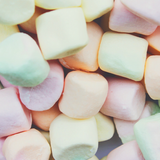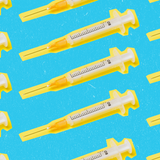RECENT ARTICLES

Daydreaming Might Make You More Creative—But It Depends on What You Daydream About - By Claire Zedelius Behavioral Scientist
In the past hour, you’ve probably had atleast a few spontaneous daydreams that had nothing to do with what you weredoing. Maybe whiledrafting an email for work, your mind replayed a conversation you had earlier.Or during a less-than-riveting Zoom meeting, you might have found yourself lostin a random melody running through your head, or thinking about a family memberyou’ve been putting off calling. Your daydreaming could have taken afantastical turn: How would your life be different if you had the ability topeek a day or two into the future? Daydreaming, also known as mind wandering,...…In the past hour, you’ve probably had atleast a few spontaneous daydreams that had nothing to do with what you weredoing. Maybe whiledrafting an email for work, your mind replayed a conversation you had earlier.Or during a less-than-riveting Zoom meeting, you might have found yourself lostin a random melody running through your head, or thinking about a family memberyou’ve been putting off calling. Your daydreaming could have taken afantastical turn: How would your life be different if you had the ability topeek a day or two into the future? Daydreaming, also known as mind wandering,...WW…

What a New Marshmallow Test Teaches Us About Cooperation - By Rebecca Koomen, Sebastian Grueneisen, and Esther Herrmann - Behavioral Scientist
Imagine you’re getting ready for a dinner party tonight. You’ve been busy baking a pie all afternoon, and, when the timer finally chimes, you excitedly open the oven to discover a heavenly aroma wafting out. You briefly consider what would happen if you just took a piece now while it’s still warm—it would be so delicious with some ice cream. Then, you think about how good it will feel to arrive later at the dinner party with your pie, and how happy it will make your friends, especially after they’ve worked all afternoon on their dishes, too. So, you wait. Congratulations—you’ve just delayed...…Imagine you’re getting ready for a dinner party tonight. You’ve been busy baking a pie all afternoon, and, when the timer finally chimes, you excitedly open the oven to discover a heavenly aroma wafting out. You briefly consider what would happen if you just took a piece now while it’s still warm—it would be so delicious with some ice cream. Then, you think about how good it will feel to arrive later at the dinner party with your pie, and how happy it will make your friends, especially after they’ve worked all afternoon on their dishes, too. So, you wait. Congratulations—you’ve just delayed...WW…

How Focusing on Individual Achievement Favors the Upper Class - By Andrea Dittmann - Behavioral Scientist
I want you to think about two college athletes: Alex andRyan. Alex is the fastest runner on the cross-country team, while Ryan isconsidered the best on the basketball team. Who do you think is more athletic?Who is a better player?These questions may seem like either a trick or impossible toanswer: “Cross-country running and basketball are totally different sports!”you might say. “Each sport has unique standards for what constitutes being a ‘good’athlete.”Indeed, when we think about what makes someone a successful and effective cross-country runner, we often think of someone who can perform...…I want you to think about two college athletes: Alex andRyan. Alex is the fastest runner on the cross-country team, while Ryan isconsidered the best on the basketball team. Who do you think is more athletic?Who is a better player?These questions may seem like either a trick or impossible toanswer: “Cross-country running and basketball are totally different sports!”you might say. “Each sport has unique standards for what constitutes being a ‘good’athlete.”Indeed, when we think about what makes someone a successful and effective cross-country runner, we often think of someone who can perform...WW…

Challenges Facing a COVID-19 Vaccine: A Behavioral Science Perspective - By Michael Hallsworth & Alison Buttenheim - Behavioral Scientist
The coronavirus pandemic has spurred unprecedented efforts to find a vaccine. have been poured into development, with yearslong timelines . A vaccine is widely seen as one of the for ending the current crisis. There are no fewer than , 24 of which are already in clinical trials.But, at the same time, there have been growing concerns that many people will not take up a COVID-19 vaccine when it arrives. One recent poll showed that Americans would not try to get vaccinated; another showed that would actively refuse to do so. This means that countries could a level of uptake needed for herd...…The coronavirus pandemic has spurred unprecedented efforts to find a vaccine. have been poured into development, with yearslong timelines . A vaccine is widely seen as one of the for ending the current crisis. There are no fewer than , 24 of which are already in clinical trials.But, at the same time, there have been growing concerns that many people will not take up a COVID-19 vaccine when it arrives. One recent poll showed that Americans would not try to get vaccinated; another showed that would actively refuse to do so. This means that countries could a level of uptake needed for herd...WW…

How Fraud and a Broken Publishing System Fueled the Vaccine-Autism Myth - By Stuart Ritchie - Behavioral Scientist
Psychologist Stuart Ritchie’s new book, , provides an uncomfortable tour of the current state of the scientific system that has provided us with so much—cures for disease, discoveries about ourselves, knowledge of this and other worlds—but is beginning to let us down. And, as you’ll see below, it’s failing us not in insignificant ways. It’s not that something is amiss with science per se, Ritchie writes, but the very human systems in which science takes place.What has caused the breakdown of our scientific ideals and systems? Ritchie identifies the four main culprits—fraud, bias,...…Psychologist Stuart Ritchie’s new book, , provides an uncomfortable tour of the current state of the scientific system that has provided us with so much—cures for disease, discoveries about ourselves, knowledge of this and other worlds—but is beginning to let us down. And, as you’ll see below, it’s failing us not in insignificant ways. It’s not that something is amiss with science per se, Ritchie writes, but the very human systems in which science takes place.What has caused the breakdown of our scientific ideals and systems? Ritchie identifies the four main culprits—fraud, bias,...WW…
- Total 5 items
- 1